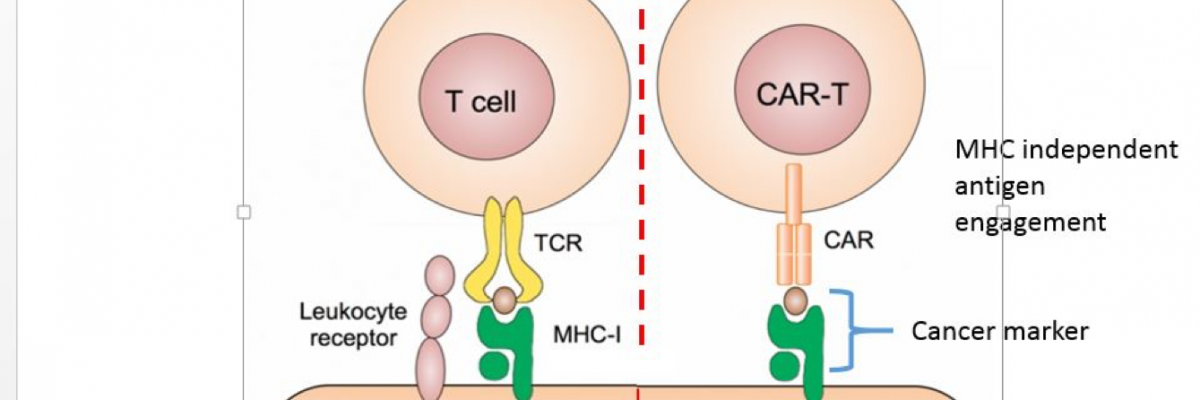Optimisation of chimeric antigen receptor immunotherapy: building a better car?
Undertake an honours project in the construction and evaluation of a novel Chimeric Antigen Receptor T cell targeting a solid tumour antigen.
CAR-T cells have demonstrated robust clinical activity against B-cell cancer, although they also cause B cell aplasia. However, it has been noted that perhaps the greatest challenge to the field of engineered T cell therapy is the identification of a ‘universal’ CAR-T, that is, a CAR-T cell that can attack a broad range of cancers, especially solid cancers.
We have identified and tested a cancer target that we believe has the potential to meet this challenge. P2X7 is a human cell surface protein that, when functioning normally, controls programmed cell death in old or damaged cells.
A dysfunctional version of P2X7, named nfP2X78, has been identified on cancer cells from a wide variety of tissues, including brain, prostate, breast, melanoma, bowel, ovary, cervix, lung, pancreas and stomach, while being completely absent on healthy cells.
We propose that a CAR-T cell targeting nfP2X7 could attack a broad range of solid cancers and have little, if any, off-cancer damage.
We have already generated prototype nfP2X7 targeted CAR-T cells and have data showing that these CAR-T cells can kill several solid cancer cell types in the laboratory. this project will develop and test new CAR-T constructs.
Study molecular immunology
My lab is interested in how a healthy immune system balances being ready to react by swiftly fighting off pathogens, while maintaining tolerance to harmless challenges such as commensal bacteria, food and normal self-tissues.
The cellular immune repertoire in humans is broad, but we are focused on a T cell subset that is shaped along with the immune system from birth.
These cells are known as regulatory T cells, and they are accepted as the policemen of the immune system.
There is increasing evidence that in a wide number of disease states including autoimmune diseases such as Type 1 diabetes and Multiple Sclerosis, these cells fail to regulate the immune system, and allow inappropriate destruction of tissues that are essential for life.
In order to understand how this breaks down in disease one must first understand what is the basis of a healthy Treg. To do this we are focused on human cells and we use a number of state of the art gene discovery tools such as RNAseq, ATACseq, ChIPseq and HiC to identify and then confirm the key genes in Treg function.
As Treg play a role in autoimmune disease, cancer and transplantation tolerance, our research findings have a wide clinical application. Our honours projects are from parts of this overall research program. We currently have multiple grants, which provides lab support for students.

Supervisors
Co-supervisor: Tim Sadlon - Women's and Children's Hospital | Dr Veronika Bandara
Research area: Molecular immunology
Recommended honours enrolment: Honours in Molecular and Biomedical Science

